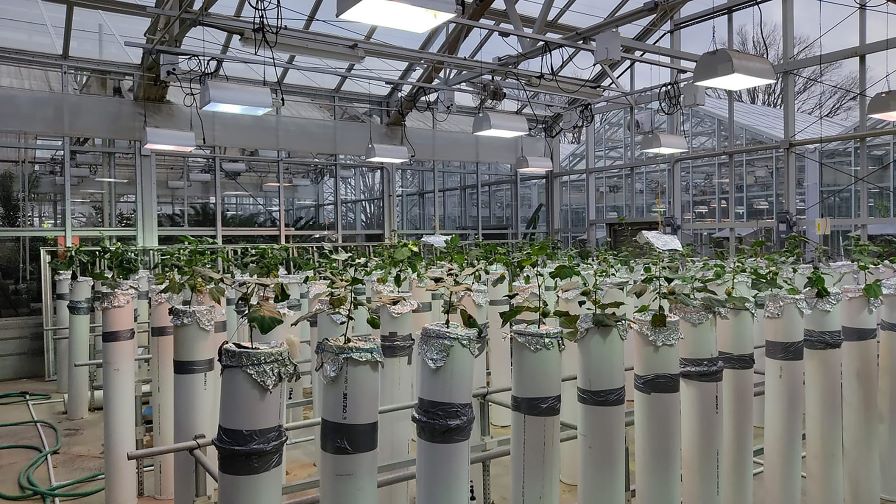
A recent study led by Clemson University's Sruthi Narayanan has revealed critical root traits in upland cotton that enhance water use efficiency (WUE), a key factor for climate resilience. The research highlights specific traits such as root weight, length, surface area, and the volume of fine roots (less than 0.25 mm), which are essential for improving the plant's ability to withstand drought conditions. Upland cotton, traditionally known for its drought tolerance, has been primarily bred for above-ground traits, which has limited its yield due to inadequate root exploration capabilities [8049faa4].
The study tested various genotypes from major U.S. cotton-producing regions, identifying Deltapine 14, Station Miller, and Southland M1 as the top performers in terms of root traits and overall resilience. Notably, hardpans in soil can lead to yield losses of up to 50%, making the understanding of root traits even more crucial for cotton farmers [8049faa4].
Funded by the USDA Agricultural Research Service and Cotton Incorporated, this research is part of a broader initiative to develop climate-resilient cotton varieties. Future studies are planned to validate these findings under field conditions, which will further inform breeding programs aimed at enhancing the sustainability of cotton farming [8049faa4].
The implications of this research are significant, as cotton production is highly vulnerable to the impacts of climate change, including rising temperatures and unpredictable rainfall patterns. By focusing on the genetic factors that contribute to root resilience, scientists aim to create new cotton varieties that can better adapt to these challenges, ensuring the sustainability of the cotton industry [8049faa4].
This study aligns with ongoing efforts in the agricultural sector to promote climate-smart farming practices and sustainable agriculture. Investing in research and innovation is essential for farmers to adapt to climate change while meeting the global demand for cotton and minimizing environmental impacts [8049faa4].